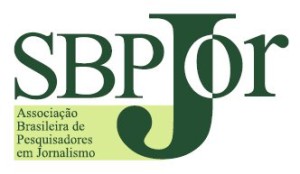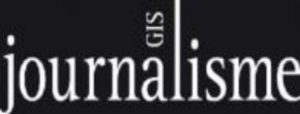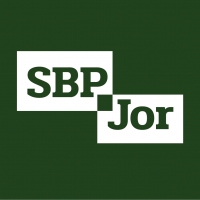
Call for Proposals
1st Brazil-France-Francophone Belgium Journalism Research Conference:
The Sociocultural Frontiers of Journalism in Brazil and in Francophone space
November 12-13, 2018 in São Paulo, Brazil
Historically, journalism has always nourished on neighboring spaces, such as literature, the fine arts and the social sciences[1]. This relationship goes back to the very “birth” of journalism, marked by a flow of actors, practices and even epistemologies from different backgrounds. Yet this relationship has not disappeared despite the current automatization of journalism. In fact, journalism continues to borrow from this intellectual inheritance of which it is made. Diachronic research[2] shows that journalism often changes in conjunction with other sociocultural practices, adopting common innovations, sharing conventions, and having a regular influence on other fields over time. In a way, the history of journalism intersects with the history of literature, the arts, the social sciences, cinema, etc.
In some cases, these exchanges may give rise to new segments situated in the gap between two sociocultural practices, enjoying an autonomous set of conventions, distinct forms of content production and diffusion, and specific audiences[3]. The case that best illustrates this is literary journalism, a practice shared between journalists and writers that, throughout the 20th century, developed specific forms of production and narration of the themes in society, using literary fiction techniques and journalistic reporting. Yet there are more contemporary segments, such as web docs and new formats of storytelling, in which the languages of journalism, cinema and the arts merge and form a new practice located at the interface of these social worlds. Something similar happens in the relationship between journalism and the social sciences where exchanges between journalists and academics are directed at specific audiences. This is what happens with vehicles of media criticism where the sociological practice of critical reading of the media is reappropriated from journalistic language.
Some segments, such as literary journalism, are so widespread and established in society that they are able to claim a kind of disciplinary autonomy[4]. Others may have a more ephemeral or restricted existence, but they do not fail to produce long-term effects on the renewal of practices in journalism and literature. This is true with adopting ‘making of’ techniques in journalistic and literary narratives[5] or the role of the experiments produced in cultural books of modernization of Brazilian journalism in the 1960s and 1970s [6].
Therefore, studying the socio-cultural boundaries of journalism requires one to reflect on the dynamics of transformation, diversification and cooperation between journalists and other social spaces. This theme, so dear to the Brazilian, French and Belgian community of researchers, will be debated at the 1st Brazil-France-Belgium Francophone Colloquium on Journalism Studies, organized by SBPJor, in partnership with GIS-Journalisme and the ReSIC-Université Libre de Bruxelles.
Proposals may be submitted by communication researchers from the three countries who are interested in discussing one of the five research axes described below:
- The cross-influences between journalism and other cultural practices throughout history. This axis prioritizes works that show the moments of sharing and exchanging conventions between journalism, literature, cinema and plastic arts, and their effects on the constitution and transformation of these practices. Papers that also analyze the circulation of these conventions between Brazil, France and Belgium are also welcome.
- Emerging segments of journalism constituted in the gap between different cultural practices (ex: web docs, mooks etc.). The aim of this axis is to understand how the cooperation between journalism, literature, arts, social sciences, and other fields can lead to the development of new practices (often seen only from the point of view of technological innovation).
- The modalities of collaboration between journalists and actors from other cultural segments. In this axis, we start with the concept of journalism as a collective practice where journalists depend on the collaboration with other actors to produce and disseminate information. More specifically, we would like to discuss the role of actors from other spheres of culture production (designers, illustrators, writers) in journalistic activity, including the conventional forms of cooperation they establish with journalists in activities such as computer graphics, data journalism, cultural supplements, etc.
- Hybrid statutes. This axis adopts a professional sociology viewpoint when analyzing the emergence and processes of negotiation identity for actors located on the border of journalism and other cultural activities, such as journalist-writers and writer-journalists, journalist-filmmakers and filmmaker-journalists, journalist-painters and painter-journalists.
- Bridges with other fields of knowledge. This axis intends to discuss theoretical, methodological and practical proposals between journalism and other fields of knowledge, such as sociology, ethnography, anthropology and psychology, among others. In a context of complex thinking, attempting to understand facts often demands partnerships with other contributions and specialists, whether in the productive sphere, as in the case of literary journalism, or in journalism research.
Those interested are invited to submit an abstract in English of up to 1,000 words in length via SBPJor’s Open Conference System (http://sbpjor.org.br/congresso/index.php/BFFB/BFFB2018). Na submissão, deverão informar o eixo de interesse. Trabalhos que adotem perspectivas comparativas, modalidades de circulação de práticas ente países ou objetos transnacionais com foco no Brasil e/ou França e/ou Bélgica serão bem vindos. The deadline for submissions is May 30, 2018.
Key dates
| Deadline for submissions (1,000 words) | May 30 2018 |
| Notification of decisions on abstracts | June 15 2018 |
| 1st Brazil-France-Francophone Belgium Journalism Research Conference: | November 12 et 13 2018 |
Organizing Committee
In Brazil
Fábio Pereira
University of Brasilia and Brazilian Association for Journalism Researchers (SBPJor)
For Brazilian Organization
E-mail: fabiop@unb.br
Monica Martinez
University of Sorocaba and Brazilian Association for Journalism Researchers (SBPJor)

SBPJor is a Brazilian association dedicated to foster, since 2004, research on journalism (theoretical and empirical work). It publishes the Brazilian Journalism Research (BJR), a tri-annual journal edited in English and Portuguese/Spanish. For further information about the Colloquium please visit our website (www.sbpjor.org.br/).
In France

GIS Journalisme assembles five research centers on journalisme in France : CARISM (Centre d’analyse et de recherche interdisciplinaires sur les médias) EA 2293, Université Panthéon-Assas ; Arènes (Centre de recherche sur l’action politique en Europe) UMR 6051 / CNRS, Institut d’Etudes Politiques, Université Rennes1) ; ELICO (Equipe de recherche de Lyon en Sciences de l’information et de la communication) EA 4147, Université Lumière Lyon 2 ; GRIPIC (Groupe de recherches interdisciplinaires sur les processus d’information et de communication) EA 1498, Celsa, Université Paris-Sorbonne ; and CREM (Centre de recherches sur les médiations) EA 3476, Université de Lorraine.
In Belgium

Florence Le Cam.
Lapij-ReSIC
Université Libre de Bruxelles
E-mail : flecam@ulb.ac.be
Scientific committee
Aurélie Olivesi (Elico, France)
Béatrice Damian-Gaillard (Arènes, France)
Claudia Nonato (FIAMFAAM Centro Universitário, Brazil)
Claudia Lago (Universidade de São Paulo, Brazil)
Danilo Rothberg (Universidade Estadual Paulista, Brazil)
Dione Oliveira Moura (Universidade de Brasília, Brazil)
Fabiana Piccinin (Univeridade Santa Cruz do Sul, Brazil)
Isabelle Meuret (Université Libre de Bruxelles, Belgium)
Laura Storch (Universidade de Santa Maria, Brazil)
Loic Ballarini (Elico, France)
Manon Liebert (ReSIC-Université Libre de Bruxelles and Université de Mons, Belgium)
Marcos Paulo da Silva (Universidade de Mato Grosso, Brazil)
Raquel Longhi (Universidade Federal de Santa Catarina, Brazil)
Rémy Rieffel (Carism, France)
Valérie Jeanne Perrier (Gripic, France)
Sonia Virgínia Moreira (Universidade do Estado do Rio de Janeiro, Brazil)
Zélia Leal Adghirni (Universidade de Brasília Brazil)
——
[1] RUELLAN, Denis. Le Professionnalisme du Flou. Identité et savoir-faire des journalistes français. Grenoble: PUG, 1993; RUELLAN, Denis. A Professional. Or How to Recognize One. Brazilian Journalism Research, v. 13, n. 1, pp. 6-19, 2017. doi: https://doi.org/10.25200/BJR.v13n1.2017.978
[2] COSTA, Cristiane. Pena de aluguel: escritores-jornalistas no Brasil: 1904-2004. São Paulo: Cia das Letras, 2005; PEREIRA, Fábio Henrique. Jornalistas-intelectuais no Brasil. São Paulo: Summus, 2011.
[3] Ruellan (1993).
[4] BAK, John S. Toward a Definition of International Literary Journalism. Brazilian Journalism Research, v. 13, n. 3, pp. 214-239, 2017. doi: https://doi.org/10.25200/BJR.v13n3.2017.1007
[5] Costa (2005).
[6] ABREU, Alzira Alves de. Um novo olhar sobre os jornalistas. Os depoimentos orais. Sur le journalisme, About journalism, Sobre jornalismo, Vol. 1, n. 1, pp. 96-104, 2012; DINES, Alberto. Entrevista a Alzira Alves de Abreu e Fernando Lattman-Waltman. In: Alzira Alves de Abreu; Fernando Lattman-Waltman; Dora Rocha (Orgs.). Eles mudaram a imprensa: depoimentos ao CPDOC. Rio de Janeiro: FGV, 2003, p. 75-175; RIBEIRO, Ana Paula Goulart. Jornalismo, literatura e política: a modernização da imprensa carioca nos anos 1950. Estudos Históricos, Mídia, n° 31: 2003.


